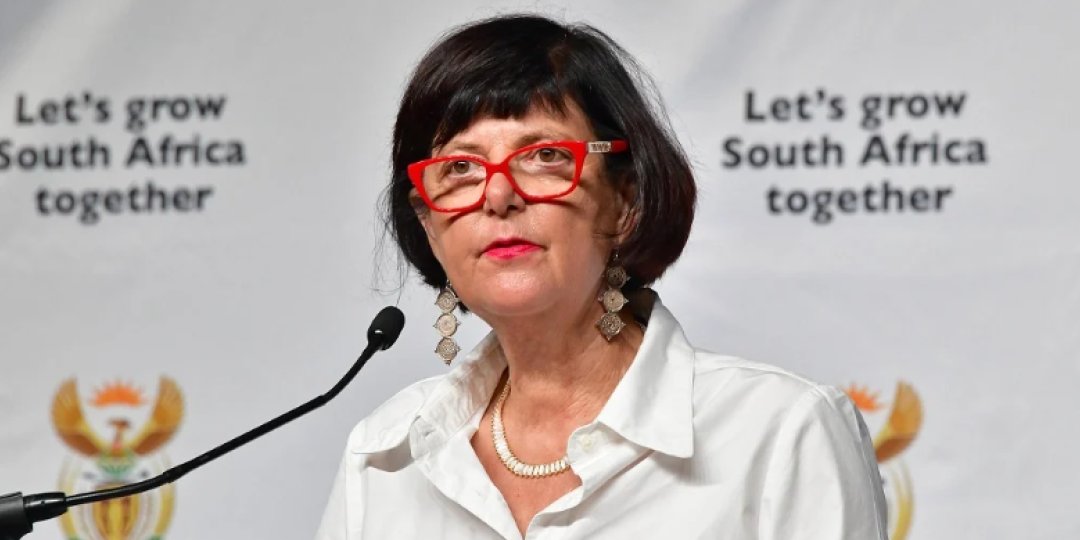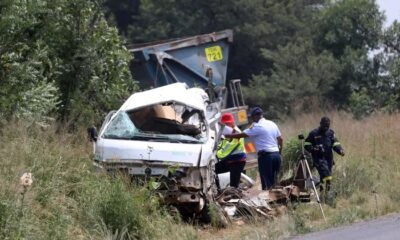News
Barbara Creecy Pulls the Plug on RAF Board After Mounting Scandals

Years of dysfunction at the Road Accident Fund have come to a head and Barbara Creecy isn’t letting it slide.
Transport Minister Barbara Creecy has officially dissolved the board of the Road Accident Fund (RAF), citing a storm of mismanagement, legal chaos, and questionable leadership that’s been simmering for far too long.
For South Africans who’ve watched the RAF spiral into what some have called a “legal circus,” this latest move feels like a long-overdue reckoning.
Legal bills, chaos, and a suspended CEO
At the centre of the crisis is a worrying pattern: the RAF has been bleeding money on legal fees, with ongoing litigation — some of it over the Fund’s accounting methods — draining precious resources that should be compensating road accident victims.
One incident, in particular, sent shockwaves through the department: the board’s handling of CEO Collins Letsoalo’s suspension. The decision sparked a dramatic legal fightback from Letsoalo, throwing the already-troubled organisation into deeper turmoil. Creecy described the board’s move as “reckless,” and many observers agree it was yet another blow to the Fund’s crumbling credibility.
To make matters worse, the RAF has also seen a string of default court judgments pile up. These failures to appear or properly defend cases in court have further inflated legal costs and exposed the organisation’s financial vulnerabilities.
A trust deficit and a system under strain
The RAF, meant to provide compensation for victims of road accidents, has struggled for years to do just that — efficiently and fairly. Delays, administrative messes, and ballooning costs have eroded public trust.
For many South Africans, the Fund has become a painful symbol of government inefficiency. On social media, Creecy’s decision was met with a mix of relief and frustration.
“About time someone cleaned house at the RAF. We need accountability!” one X user wrote.
“My case has been pending for 5 years. Maybe now something will change,” another person posted.
What happens next?
Creecy has turned to the National Treasury for help, asking it to appoint an interim functionary to act as the accounting authority of the RAF — a temporary fix while a long-term leadership overhaul is put in place. This move aligns with the Public Finance Management Act, designed to ensure tighter oversight of public institutions.
Though no permanent appointments have been made yet, this shake-up signals a strong stance on governance — and a warning to other state-run entities that have let dysfunction slide unchecked.
A deeper problem?
The RAF’s troubles aren’t new. For years, it has faced accusations of corruption, poor financial planning, and an inability to adapt to modern claims management. Civil society organisations and legal experts have repeatedly called for reforms — not just in leadership, but in structure.
While Creecy’s intervention is bold, many wonder if this is just treating the symptoms. Without deeper institutional reform, South Africa risks seeing the same headlines repeat themselves in a few years’ time.
Bottom line:
Creecy has made it clear: the days of sweeping dysfunction under the rug at the RAF are over. But turning the page will require more than a reshuffle. It’ll take vision, reform — and a serious commitment to serving the people the Fund was created to protect.
Source:IOL
Follow Joburg ETC on Facebook, Twitter , TikTok and Instagram
For more News in Johannesburg, visit joburgetc.com



























